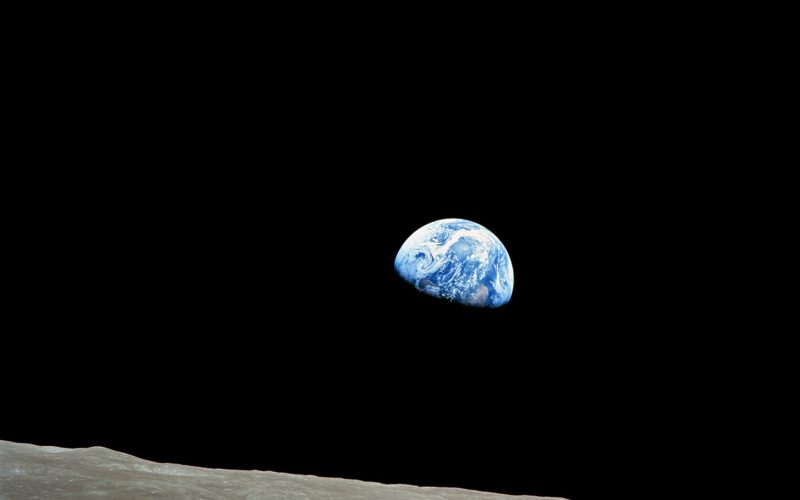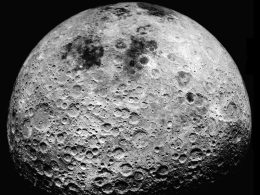Space exploration has always fascinated humanity, and in recent years, it has become increasingly popular. From the moon landing to SpaceX’s rocket launches, people worldwide are captivated by space missions. But why is this fascination with space growing? One reason could be the failure of past missions. Ironically, failed attempts at reaching space have fueled global interest in exploring beyond our planet’s atmosphere. In this blog post, we’ll explore how failure is fueling a new era of space exploration and what lessons we can learn from past mistakes in the race to reach the moon.
Why space exploration is growing in popularity
There are many reasons why space exploration has become increasingly popular in recent years. One major factor is the advancement of technology, which has allowed us to explore and study the universe like never before. With new telescopes, rovers, and spacecraft being developed all the time, we can see further into space than ever before.
Another reason for growing interest in space is its potential for scientific discovery. Space research provides valuable insights into our planet’s origins, climate change, and even the possibility of extraterrestrial life. It also offers opportunities to develop new technologies that could benefit humanity on Earth.
Additionally, there is a sense of wonder and excitement associated with exploring what lies beyond our planet. The idea of discovering new worlds or making contact with alien civilizations captures people’s imaginations and inspires curiosity about the unknown.
The commercialization of space travel has made it more accessible to everyday people than ever before. Companies like SpaceX are working towards making civilian trips to space a reality in the near future – opening up a whole new world of possibilities for adventure seekers everywhere.
The Moon landing: a turning point for the space industry
The Moon landing was a turning point for the space industry, not just because it was an incredible feat of human engineering and bravery, but also because it marked the beginning of a new era in space exploration. For the first time, humans had set foot on another celestial body, expanding our understanding of the universe and opening up new possibilities for scientific discovery.
The success of the Moon landing inspired a generation to pursue careers in science and technology. It showed that with determination, hard work and innovation anything is possible. It also sparked international competition as countries raced to be the next to land on the Moon or achieve other milestones in space exploration.
However, this newfound interest in space also came with challenges. The cost of conducting moon missions proved to be astronomical, leading many countries to scale back their ambitions or abandon them altogether. This led some critics to question whether continued investment into space exploration was worth it.
Despite these setbacks, there has been renewed interest in lunar expeditions recently with several nations announcing plans for upcoming missions. With advances in technology making such trips more feasible than ever before and private companies entering the fray alongside government agencies like NASA and ESA (European Space Agency), we may see more successful lunar missions sooner than later.
How failed space missions are fueling global interest in space missions
There’s no denying that space exploration is a risky business, and even the most carefully planned missions can end in failure. But surprisingly, these failures have actually played a significant role in fueling global interest in space missions.
One reason for this is the human fascination with overcoming adversity. When we see scientists and engineers working tirelessly to fix issues and overcome obstacles during a mission, it captures our attention and inspires us to learn more about the science behind it all.
In addition, failed missions often lead to important lessons learned that can be applied to future endeavors. For example, when NASA’s Mars Climate Orbiter crashed due to a mismatch of measurement units between different teams, it sparked changes in communication protocols within the agency.
There is an element of competition at play. Failed attempts by one country or company often spur others into action as they strive to achieve their own success and demonstrate their capabilities on an international stage.
All of these factors contribute to why failed space missions are fueling global interest in space exploration overall – because despite setbacks and challenges along the way, humans have always been driven by curiosity and ambition when it comes to exploring beyond our planet.
Lessons learned from failed moon landing races
The moon landing races of the 1960s were a defining moment for space exploration, but they also came with many failures. These failed attempts have taught us valuable lessons about the risks and challenges that come with exploring space.
One of the biggest lessons learned from these races is the importance of thorough planning and preparation. The United States’ successful Apollo 11 mission was the result of years of meticulous planning, testing, and training. This highlights how crucial it is to take every aspect into account when attempting such difficult endeavors.
Another lesson that we can learn from these failures is that setbacks are inevitable in any complex undertaking. Despite suffering numerous setbacks along the way, both NASA and Soviet scientists persevered through trial and error until they achieved their ultimate goal.
Furthermore, these failed missions also remind us about the importance of cooperation between nations in achieving common goals. The Space Race was fueled by a competitive spirit between two superpowers; however, modern-day space exploration has been characterized by international collaboration among various countries worldwide.
While there were many setbacks during these moon landing races throughout history, each failure provided an opportunity to learn new things about space travel and technology – ultimately leading to greater success in future missions.
Conclusion
The world’s fascination with space exploration continues to grow, and interest in failed missions is just one example of this. While it may seem counterintuitive that failures could drive more people towards space exploration, it highlights the resilience and determination of humanity to push forward despite setbacks.
The Moon landing was a pivotal moment for the space industry, spurring on decades of innovation and technological advancements. It also showed us that failure can be a valuable tool in learning and improving upon our mistakes.
As we continue to explore outer space, we must remember that failures will happen along the way. However, these failures should not discourage us but instead serve as motivation to keep pushing forward towards new discoveries.
So let us embrace failure as a necessary part of progress and continue exploring the vast expanse beyond our planet’s atmosphere. The future of space exploration holds endless possibilities, limited only by our imaginations and determination to succeed.












